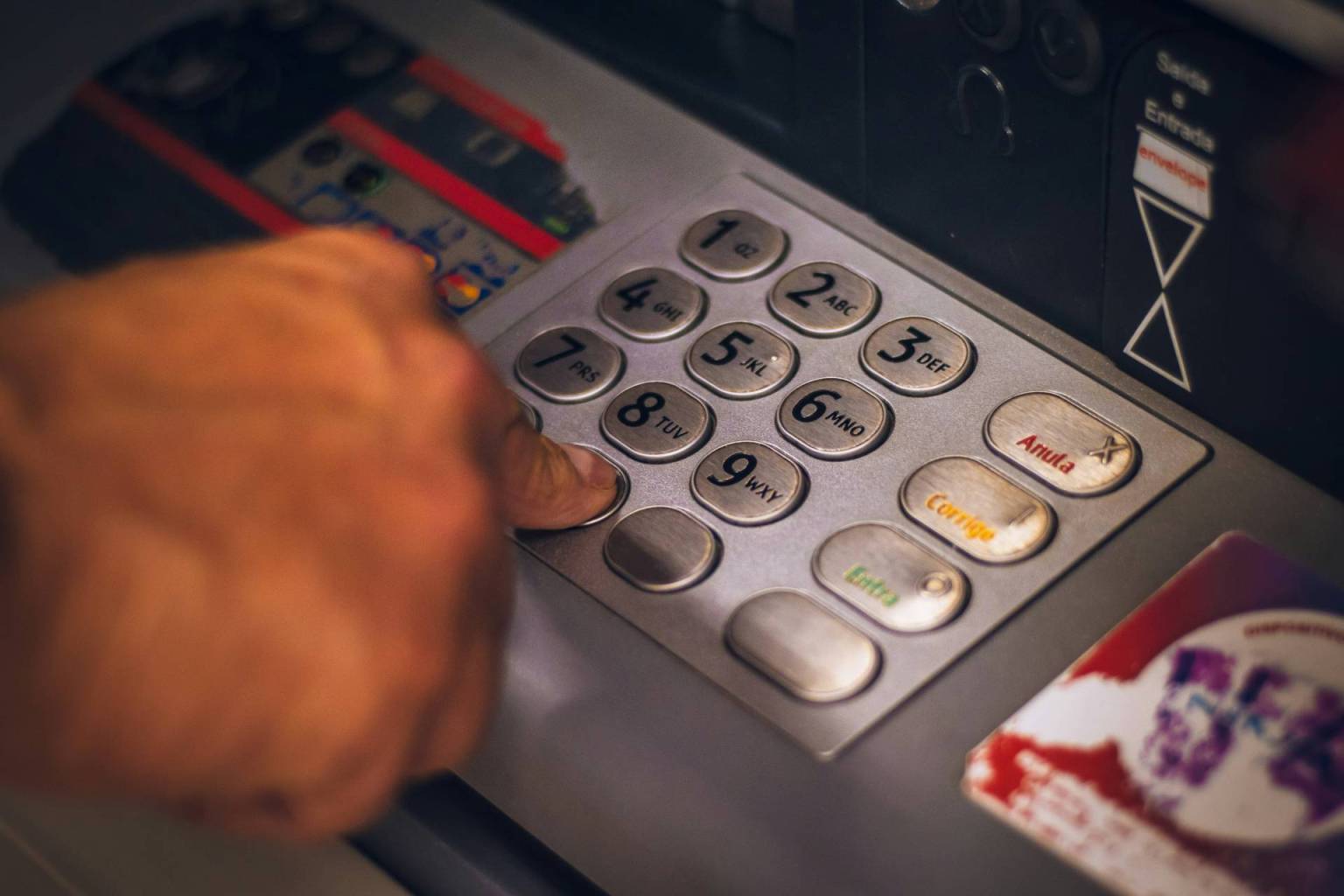Here, we examine some of the best banks for small businesses in 2024, focusing on their business banking offerings, lending opportunities, and other beneficial features.
Best Banks for Small Business
Here are some of the best banks for small businesses in 2024, based on our research and analysis:
| Bank | NerdWallet rating | Monthly fee | APY | Bonus | Highlights |
|---|---|---|---|---|---|
| Wells Fargo | 4.5/5 | $25 | 0% | N/A | One of the largest SBA lenders, offering a full suite of banking services |
| KeyBank National Association | 4.5/5 | $25 | 0.01% | N/A | Low monthly fees and multiple business checking offers |
| Chase Bank | 4.5/5 | $0 | 0% | $400 | Established bank for businesses with high-end selection of business credit cards |
| Bank of America | 4.5/5 | $0 | 0% | $200 | Many branch locations and a plethora of account options |
| PNC Bank | 4.0/5 | $100 | 0% | $0 | Multitude of business banking offerings and bookkeeping services available |
| Regions Bank | 4.0/5 | $100 | 0.01% | $0 | Ample account choices and one of the largest SBA lenders in the country |
| Truist Bank | 4.0/5 | $0 | 0% | $0 | Great lineup of small business services and good for businesses looking for multiple checking options |
| Capital One | 4.0/5 | $0 | 0% | $0 | Customizable banking experience and ample online/mobile customer support |
| U.S. Bank | 4.0/5 | $100 | 0% | $0 | Flexible loan options and solid bank accounts |
| TAB Bank | 4.5/5 | $25 | 0.25% | $0 | Decent APY and lots of business-specific offerings |
| Live Oak Bank | 5.0/5 | $0 | 4.00% | $0 | Solid APY on savings and lots of lending products |
Let’s take a closer look at each of these banks, examining their unique offerings, advantages, and potential drawbacks.
Wells Fargo
Wells Fargo stands out among national and regional banks by offering a wide range of business banking solutions. It is one of the most active SBA lenders, demonstrating its commitment to supporting small businesses.
Pros
-
One of the largest SBA lenders.
-
High cash deposit limits.
-
Business accounts can be opened entirely online.
-
No fees at 16,000 Wells Fargo ATMs and access to around 3,900 branches.
Cons
-
No free business checking account option.
-
$100 minimum opening deposit requirement.
-
Fee for using out-of-network ATMs.
KeyBank National Association
KeyBank National Association offers a comprehensive suite of business banking services. Its low monthly fees and multiple business checking offers make it a top choice for small businesses.
Pros
-
Fee-free electronic transactions.
-
High cash deposit limits.
-
Business accounts can be opened entirely online.
-
No fees at 16,000 KeyBank ATMs and access to around 4,700 branches.
Cons
-
No free business checking account option.
-
$100 minimum opening deposit.
-
Fee for using out-of-network ATMs.
Chase Bank
Chase Bank is known for its full-service business banking. It offers a wide range of services, from business checking accounts to business credit cards, business loans, and more.
Pros
-
No minimum opening deposit.
-
Unlimited fee-free electronic transactions.
-
Integrated credit card processing.
-
Welcome bonus for new customers.
-
No overdraft fee unless account is overdrawn by more than $50; 24-hour grace period applies to overdrafts beyond that amount.
-
24/7 customer support.
-
No fees at 16,000 Chase ATMs and access to around 4,700 branches.
Cons
-
$15 monthly fee.
-
Monthly limit on fee-free cash deposits ($5,000) and physical transactions (20).
-
Fee for using out-of-network ATMs.
Bank of America
Bank of America offers a range of business banking solutions, making it a great choice for businesses of all sizes. It has many branches across the country, providing convenience for businesses that prefer in-person banking.
Pros
-
Fee-free electronic transactions.
-
High cash deposit limits.
-
Business accounts can be opened entirely online.
-
No fees at 16,000 Bank of America ATMs and access to around 3,900 branches.
Cons
-
No free business checking account option.
-
$100 minimum opening deposit.
-
Fee for using out-of-network ATMs.
PNC Bank
PNC Bank offers a multitude of business banking offerings. It provides business checking accounts, savings accounts, business loans, merchant services, and more. It also offers bookkeeping services, making it easier for businesses to manage their finances.
Pros
-
Unlimited fee-free transactions; no overdraft fees.
-
Earn 2.00% interest on account balances up to and including $250,000.
-
Fee-free ATM access with automatic refund of third-party ATM fees (worldwide).
-
Cash deposits via MoneyPass and SUM ATMs.
-
Earn unlimited 1% cash back on debit card purchases.
Cons
-
$10 monthly fee.
-
$100 minimum opening deposit requirement.
-
Minimum $500 balance required to earn cash-back rewards and waive monthly fee.
Regions Bank
Regions Bank offers a diverse range of business banking services. It has a large number of business checking and savings accounts, making it a great choice for businesses of all sizes.
Pros
-
Ample account choices.
-
One of the largest SBA lenders in the country.
-
Access to bookkeeping and other business services.
Cons
-
Limited online banking services.
-
Some other banks offer more free transactions and free cash deposited per month.
Truist Bank
Truist Bank offers a comprehensive suite of business banking services, making it a top choice for businesses of all sizes.
Pros
-
Great lineup of small business services.
-
Multiple checking account options.
-
Branch locations across the eastern and central parts of the U.S.
Cons
-
High monthly fees for some accounts.
-
Limited online banking services.
Capital One
Capital One is known for its excellent customer service and great credit card offerings. It provides a range of business banking solutions, including business checking and savings accounts, business loans, and merchant services.
Pros
-
Customizable banking experience.
-
Excellent in-person and online customer service.
-
Great credit card offerings.
Cons
-
Limited branch locations.
-
High minimum deposit for some accounts.
U.S. Bank
U.S. Bank offers a comprehensive suite of business banking services. It provides business checking and savings accounts, business loans, merchant services, and more.
Pros
-
Wide range of term loans available.
-
Flexible loan payment lengths.
-
Solid bank accounts.
Cons
-
Credit card offers geared towards more established businesses.
-
Limited savings options.
TAB Bank
TAB Bank provides a range of business banking solutions. It offers business checking and savings accounts, business loans, merchant services, and more.
Pros
-
Decent APY.
-
Lots of business-specific offerings.
-
Good online experience.
Cons
-
Minimum deposit requirements.
-
Monthly fees if conditions are not met.
Live Oak Bank
Live Oak Bank is one of the most active SBA lenders in the country. It offers a range of business banking solutions, including business checking and savings accounts, business loans, merchant services, and more.
Pros
-
Solid APY on savings.
-
Lots of lending products.
-
Good online banking experience.
Cons
-
No branch locations.
-
No business checking account.
Selecting the best bank for your small business involves considering various factors, from the bank’s business banking offerings to its customer service and convenience. The banks mentioned above are some of the top choices for small businesses in 2024, but the best bank for your business will depend on your specific needs and preferences.
Criteria for Choosing the Best Banks for Small Business

We evaluated almost 30 national, regional, and online banks to identify the top banks for small businesses, considering the following aspects:
-
Business Checking Accounts: We looked at the number and types of business checking accounts offered. We considered the transaction limits, fees, and ways to waive the fees.
-
Business Loans: We examined the range of small business lending options, including SBA loans and traditional term loans.
-
Additional Services: We assessed the additional services offered, such as business credit cards, merchant services, payroll services, and business insurance.
Understanding Small Business Banking Needs
Before diving into the list of the best banks for small businesses, it is essential to understand what your business needs from a bank. As a small business owner, you must consider the following:
-
Business Checking Account: This is a must-have for any small business. It separates your personal and business finances, making it easier to manage your money and comply with tax regulations.
-
Business Savings Account: A business savings account can help you set aside funds for future investments or unexpected costs. Some banks offer high-yield business savings accounts that earn interest over time.
-
Business Loans: Banks can provide various business loans, including traditional term loans, SBA loans, and lines of credit. These loans can fund business expansion, purchase equipment, or cover operational expenses.
-
Merchant Services: If your business accepts card payments, you’ll need a merchant services provider. Some banks offer this service, making it easier to accept and process card transactions.
Factors to Consider When Choosing a Bank for Your Small Business

Selecting the right bank for your small business is a decision of paramount importance. The bank you choose will play a pivotal role in managing your financial affairs, facilitating transactions, providing credit when needed, and offering essential financial services. To make an informed decision, it is imperative to consider a multitude of factors that align with the unique needs and goals of your business. In this section, we delve into the critical factors that should guide your choice when selecting a bank for your small business.
Business Banking Needs and Goals:
Begin by assessing your specific business banking needs and long-term objectives. Consider whether you require basic checking and savings accounts, access to loans or credit lines, merchant services, or specialized business products. Your bank should align with your business’s growth and financial goals.
Account Types and Fees:
Evaluate the range of business account types offered by the bank. Examine the fee structure, including monthly maintenance fees, transaction fees, and ATM fees. Look for options to waive these fees, such as minimum balance requirements or transaction limits.
Interest Rates and APY:
If your business maintains substantial account balances, inquire about the interest rates or Annual Percentage Yield (APY) offered on business savings or money market accounts. A competitive interest rate can help your business earn additional income on idle funds.
Location and Accessibility:
Consider the bank’s physical presence and accessibility. If in-person banking is essential to your business, opt for a bank with a network of branches and ATMs in your area. For businesses with nationwide operations, ensure access to a widespread ATM network.
Online and Mobile Banking:
In today’s digital age, online and mobile banking capabilities are crucial. Assess the bank’s online platform and mobile app for ease of use, functionality, and features. These tools should facilitate convenient account management, fund transfers, and mobile check deposits.
Customer Service and Support:
Reliable customer service is indispensable when issues arise or questions need answering. Investigate the bank’s customer support channels, including phone, chat, email, and in-branch assistance. Assess the bank’s reputation for responsiveness and assistance.
Business Loans and Credit Lines:
If your business anticipates the need for financing, explore the bank’s lending options. Inquire about business loans, lines of credit, or Small Business Administration (SBA) loans. Assess the application process, interest rates, and repayment terms.
Additional Services:
Examine the availability of additional services such as merchant services, payroll processing, business insurance, and retirement accounts. These services can streamline your business operations and offer valuable benefits.
Regulatory Compliance and Security:
Ensure that the bank complies with all regulatory requirements and maintains the necessary security measures to protect your business’s financial data. Verify that the bank is a member of the Federal Deposit Insurance Corporation (FDIC) or an equivalent organization for deposit insurance.
Community Engagement and Social Responsibility:
For businesses that prioritize community engagement and social responsibility, consider the bank’s commitment to these values. Some banks actively support local communities through philanthropic initiatives, which may align with your business’s values.
Reviews and Recommendations:
Seek out reviews and recommendations from other small business owners or industry associations. Hearing about the experiences of peers can provide valuable insights into the bank’s performance and suitability for your business.
Legal and Regulatory Considerations:
Familiarize yourself with any legal or regulatory considerations that may impact your choice of bank. These could include industry-specific regulations or compliance requirements that affect your business.
In conclusion, choosing the right bank for your small business is a decision that should be approached with careful consideration of multiple factors. By evaluating your business’s unique needs, assessing account options, examining accessibility and digital capabilities, and considering customer service, lending options, and additional services, you can make an informed choice that supports your business’s financial success and growth. The selection of a suitable bank is a foundational step toward achieving your business goals and ensuring efficient financial management.
Essential Tips for Effective Small Business Banking

In the complex landscape of modern business, selecting the right bank is just the initial step on the path to effective financial management. Small business owners must also be well-versed in the best practices and strategies that can optimize their banking experience and contribute to the growth and success of their enterprises.
Maintain Clear Separation of Finances: One cardinal rule of small business banking is to maintain a clear separation between personal and business finances. Opening a dedicated business checking account is crucial for this purpose. This separation not only simplifies financial tracking but also ensures compliance with tax regulations.
Regularly Reconcile Accounts: To prevent discrepancies and errors in financial records, small business owners should establish a routine for reconciling their bank accounts. Regularly comparing bank statements with internal records helps identify discrepancies early, facilitating prompt resolution.
Embrace Online and Mobile Banking: The convenience and efficiency of online and mobile banking cannot be overstated. Business owners should embrace these digital platforms for tasks such as account monitoring, fund transfers, bill payments, and mobile check deposits. Online and mobile banking offer real-time access to account information, saving time and effort.
Maximize Digital Payment Solutions: In today’s digital age, small businesses should leverage digital payment solutions to streamline transactions and improve cash flow. Consider accepting online payments, implementing electronic invoicing, and utilizing digital payment platforms to expedite the receipt of funds.
Monitor Cash Flow Closely: Maintaining a healthy cash flow is vital for business sustainability. Small business owners should monitor their cash flow closely, keeping a watchful eye on income, expenses, and payment timelines. Implementing cash flow forecasting tools can help anticipate financial needs.
Optimize Savings and Investments: Small business owners should explore opportunities to optimize their savings and investments. Investigate high-yield business savings accounts or money market accounts that offer competitive interest rates. Allocate surplus funds strategically to maximize returns.
Seek Professional Financial Advice: When faced with complex financial decisions, seeking professional financial advice can be invaluable. Consider consulting with a financial advisor or accountant who specializes in small business finance. Their expertise can guide important decisions, such as tax planning, investment strategies, and financing options.
Build Strong Banking Relationships: Building strong relationships with your bank can yield significant benefits. Cultivate open communication with your bank’s representatives, discuss your business’s needs, and explore opportunities for customized financial solutions. A strong banking relationship can lead to more favorable terms on loans or lines of credit.
Monitor Account Activity for Fraud: Small businesses are not immune to financial fraud and cyber threats. Implement robust security measures to protect your business accounts. Regularly monitor account activity for unauthorized transactions and consider using features like account alerts for added security.
Review Banking Services Regularly: The financial landscape is constantly evolving, and banking institutions regularly update their services and offerings. Small business owners should periodically review their banking services to ensure they align with the changing needs of the business. Explore new features, products, or account types that may enhance efficiency or provide cost savings.
Budget Wisely and Plan for Emergencies: Effective budgeting is a cornerstone of small business financial management. Develop a comprehensive budget that accounts for both short-term and long-term financial goals. Additionally, establish an emergency fund to safeguard your business against unforeseen challenges.
Stay Informed About Banking Regulations: Banking regulations can impact various aspects of business banking, from transaction fees to lending terms. Stay informed about relevant banking regulations and industry developments that may affect your business. Compliance with these regulations is essential for avoiding potential legal and financial pitfalls.
In conclusion, small business banking is not a passive endeavor but rather an active partnership between business owners and their chosen banking institution. By implementing these essential tips, small business owners can optimize their banking experience, enhance financial stability, and position their businesses for growth and success. Effective small business banking is a dynamic process that evolves with the changing needs of the business and the financial landscape, and staying informed and proactive is key to achieving long-term financial health and resilience.
Wrapping Up
In summary, the world of small business banking in 2024 offers a diverse array of options for entrepreneurs seeking to manage their financial affairs effectively. This article has provided a comprehensive overview of some of the best banks for small businesses, examining their unique offerings, advantages, and potential drawbacks. From established giants like Wells Fargo and Chase Bank to regional players like KeyBank National Association and niche-focused institutions such as Live Oak Bank, small business owners have a wealth of choices to consider.
We have also delved into the critical factors that should guide your decision when selecting a bank for your small business. These factors range from understanding your specific business banking needs and goals to assessing account types and fees, interest rates, and the bank’s accessibility and digital capabilities. Customer service, lending options, additional services, and regulatory compliance were also highlighted as essential considerations.
Furthermore, we explored essential tips for effective small business banking, emphasizing the importance of maintaining a clear separation of finances, regularly reconciling accounts, and embracing online and mobile banking. Maximizing digital payment solutions, monitoring cash flow closely, and optimizing savings and investments were underscored as strategies to enhance financial management.
Seeking professional financial advice, building strong banking relationships, monitoring account activity for fraud, and staying informed about banking regulations were presented as key practices to ensure a secure and productive banking experience.
Ultimately, the choice of the best bank for your small business should align with your unique needs, goals, and preferences. By considering the factors and tips outlined in this article, you can make an informed decision that supports your business’s financial success and growth. Effective small business banking is not merely a transactional process but a dynamic partnership that contributes to the resilience and prosperity of your enterprise.
Frequently Asked Questions
Which bank is best for start-up business?
The best bank for a startup business can vary depending on your specific needs and location. Some popular options include Wells Fargo, Chase Bank, and Bank of America. It’s essential to consider factors like fees, account types, access to loans, and proximity to branches when choosing the right bank for your startup.
What bank accounts should I have for my small business?
For a small business, it’s advisable to have at least two primary bank accounts: a business checking account and a business savings account. The checking account is for day-to-day transactions, while the savings account can help you set aside funds for emergencies or future investments.
What kind of bank account should I open as an LLC?
As an LLC (Limited Liability Company), you should open a business bank account specifically designed for LLCs. These accounts often provide features that cater to the needs of LLCs, such as liability protection and tax advantages.
Which bank account is best for business?
The best bank account for your business depends on factors like your business type, size, location, and specific financial needs. Popular options include business accounts offered by major banks like Wells Fargo, Chase Bank, and Bank of America, as well as online banks like Ally Business Checking or Novo.
Do I need an EIN to open a bank account for an LLC?
Yes, it’s typically required to have an Employer Identification Number (EIN) to open a bank account for your LLC. An EIN is issued by the IRS and serves as a unique identifier for your business. It’s essential for tax purposes and can also be necessary for banking and financial transactions.
Is Chase good for small businesses?
Chase Bank is generally considered a reputable option for small businesses. They offer a range of business banking services, including business checking accounts, business credit cards, and business loans. However, the suitability of Chase for your small business depends on your specific needs and location.
Is Bank of America good for small businesses?
Bank of America is another well-established bank that offers various services for small businesses. They have a broad branch network and offer business checking accounts, business savings accounts, and business credit cards. The suitability of Bank of America for your small business will depend on your requirements and preferences.
How much should I start a business bank account with?
The initial deposit requirements for opening a business bank account can vary from bank to bank. Some banks may have low or no minimum deposit requirements, while others may require a significant initial deposit. It’s essential to research different banks and choose one that aligns with your financial capabilities.
Is it OK to use a personal bank account for business?
While it’s possible to use a personal bank account for business transactions, it’s generally not recommended. Mixing personal and business finances can lead to complications with accounting, taxes, and legal liability. Opening a separate business bank account is a better practice as it helps maintain clear financial separation and simplifies record-keeping for your business.
Featured Image Credit: Photo by Eduardo Soares; Unsplash – Thank you!

